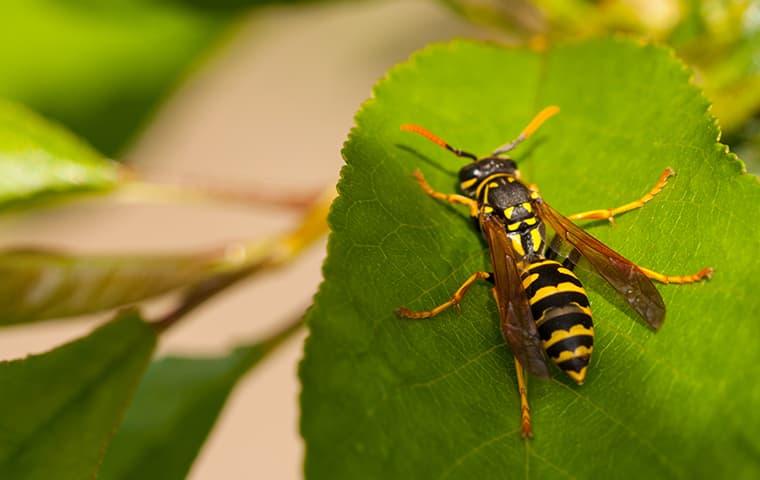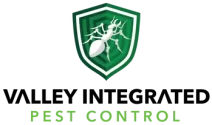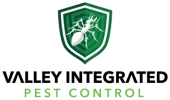When we see striped insects buzzing around, it’s easy to confuse wasps with bees. Although they share a family resemblance, there are key differences that set them apart. From their physical appearance to their habits and roles in the ecosystem, understanding these distinctions can help us respond appropriately, especially when considering the need for wasp control. In this guide, we’ll break down the main ways in which wasps and bees differ.

Physical Appearance
Body Shape
Wasps have a slender body with a noticeable waist connecting the thorax and abdomen, making them look sleek and streamlined. Bees, on the other hand, have a more rounded and furry appearance, which helps them collect pollen.
Color and Pattern
While both species can sport yellow and black, wasps often have a brighter, shinier appearance. Bees usually have a duller coloration and you’ll often find them covered in pollen.
Behavior
Diet
Wasps are predators, feeding on other insects and sometimes human food, especially sweets and proteins. Bees primarily eat nectar and pollen from flowers, playing a crucial role in pollination.
Aggression
Wasps can be more aggressive than bees, especially if they feel their nest is threatened. They are also more likely to sting multiple times, whereas a bee typically stings once and then dies.
Nesting Habits
Nest Location
Wasps can build their nests in a variety of locations, including under roof eaves, behind shutters, or even underground. Bees prefer to nest in hollow trees, old rodent burrows, or man-made hives provided by beekeepers.
Nest Material
Wasps make their nests from a papery substance they create by chewing wood mixed with saliva. Bees use beeswax to construct the hexagonal cells of their hives.
Social Structure
Colony Size
Bee colonies are larger, often housing thousands of members. Wasp colonies are generally smaller, with numbers in the hundreds. This size difference has implications for wasp control strategies.
Role in the Ecosystem
Wasps are important for natural pest control, preying on many species that can damage crops. Bees are vital pollinators, supporting the growth of many plants, including crops humans rely on for food.
Sting Safety
The sting of a wasp and a bee are quite different, affecting how we should handle encounters with each. Wasps can sting multiple times, delivering a more painful sting because their venom contains a pain-increasing chemical. Bees, however, sting only once since it leads to their death, leaving a barbed stinger that pumps venom into the skin.
This difference underscores the need for extra caution around wasps, which can sting repeatedly and with little provocation, unlike bees who generally sting only if threatened. Staying calm and avoiding sudden movements near their nests can reduce the risk of stings.
When to Contact Wasp Control Professionals
When dealing with wasps, it’s important to recognize the right time to call in professionals for wasp control. Here are some key scenarios when seeking expert assistance is advisable:
- Large or Multiple Nests: If you notice a large wasp nest or several nests around your property, this indicates a significant population that might be difficult and dangerous to handle on your own.
- Nest in Hard-to-Reach Places: Wasps often build nests in hard-to-reach places like under eaves, inside bushes, or within walls and attics. Professionals have the tools and expertise to safely handle these situations.
- Allergic Reactions: For those allergic to wasp stings, a single sting could be fatal. If allergic, avoid wasps and quickly call experts for removal.
- Aggressive Behavior: Some wasp species become aggressive when their nest is threatened. If wasps near their nest or around people act aggressively, it’s safer to seek professional help instead of handling it yourself.
- Repeated Infestations: If you’ve repeatedly removed wasp nests from the same spot, an attraction or feature might be drawing them back. Pest control experts can remove the wasps and address the cause of recurring infestations.
- Limited Success with DIY Methods: Sometimes, DIY remedies and wasp traps fail against large or deeply embedded nests. Professional services offer stronger, more effective treatments.
Balancing Safety and Nature: Expert Solutions for Managing Wasp Populations
Understanding the distinct characteristics between wasps and bees is more than just an exercise in nature observation—it’s a step towards safer, more harmonious living environments. Both these insects play pivotal roles in our ecosystems, with bees at the forefront of pollination and wasps contributing through pest control.
However, when wasp populations encroach on human spaces, concerns over safety and comfort arise, necessitating professional intervention.At Valley Integrated Pest Control, we recognize the importance of maintaining balance with nature while ensuring the well-being of our communities. Our expert team is equipped to manage wasp issues efficiently, minimizing risks to you and your loved ones without disrupting the ecological contributions these insects make.





